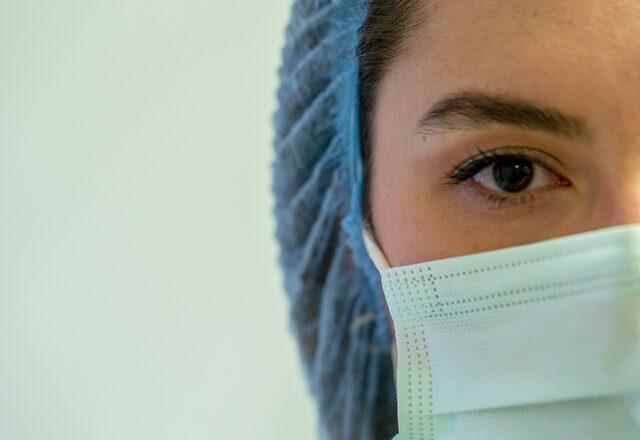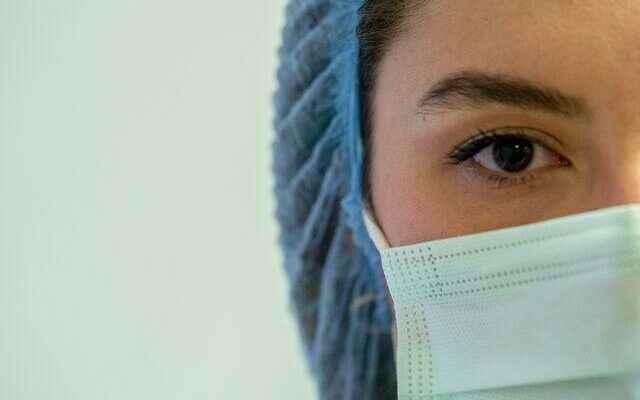The coronavirus, which has been in our lives for 2 years, continues to affect life in many ways. The number of patients who have had COVID-19 has increased considerably. Some people experience Kovid much more heavily due to reasons such as lower body resistance. According to a study examining the data of 90 thousand patients who had Kovid in the USA, the risk of chronic kidney failure increases 3 times in patients hospitalized in intensive care due to Kovid. In the study, it was observed that the risk of developing more than 30 percent loss in kidney function in the next 6 months, especially in patients who had Kovid in intensive care, increased 3 times.
THOSE WITH CHRONIC RENAL PATIENTS SHOULD BE CAREFUL WITH THE USE OF MASK
Speaking at the press conference held for the 10 March World Kidney Day, Turkish Kidney Foundation President Timur Erk and Nephrology Specialist Prof. Dr. Rümeyza Kazancıoğlu said, “Until now, blood pressure and diabetes have been risk factors for kidney health. It seems that Kovid will be among these risk factors.” Timur Erk said that especially those with transplant and chronic kidney disease should continue to use masks with the same meticulousness.
COVID-19 CAN CAUSE RENAL FAILURE IN THE LONG TERM
As we are about to enter the third year of the pandemic, new data on the long-term effects of Kovid-19 on the body have begun to emerge. Finally, according to the study published last September by the American Society of Nephrology, having Kovid-19, even if not hospitalized, increases the risk of causing kidney failure in the long term, especially in those over the age of 65. Until now, it was known that the Kovid-19 infection caused temporary damage to the kidney and the kidneys returned to normal after the treatments. However, this new study revealed that the disease can also increase the risk of chronic kidney disease in the long term. Speaking at the press conference held for the 10 March World Kidney Day, Turkish Kidney Foundation Trustee and Bezmialem Vakıf University Rector, Nephrologist Prof. Dr. Rümeyza Kazancıoğlu and Timur Erk, President of the Turkish Kidney Foundation, made important warnings.
EVEN 6 MONTHS AFTER HEALING, ITS EFFECTS ON THE KIDNEY CONTINUE
In the research titled “Results Related to Kidney in Long-Term Kovid,” published in the Journal of the American Society of Nephrology, the data of male patients over the age of 60 who applied to Gazi Hospitals across the country were monitored. These are the data of a study carried out in St. Louis. A group obtained from patients who applied to Gazi Hospitals there and all over the USA, who had Kovid, and patients who did not catch Kovid and applied to the hospital with other complaints, were compared in terms of the risk of developing kidney disease or the progression of existing kidney disease in a 6-month period.

The records of close to 1.5 million non-Kovid patients were analyzed and followed for 6 months, compared to 90 thousand patients who had Kovid. Here, too, a categorization has been made as those who have had Kovid at home, those who have spent it in the hospital, or those who have been in intensive care. While doing the study, they equalized 29 different parameters (in terms of kidney diseases) and very fine analyzes were made. The study shows that no matter how severely you suffer from Kovid, the effects on the kidneys continue even 6 months after recovery. This study shows us that once you have Kovid, even if you recover, we should not forget to have the kidneys checked while doing a general health check. While we have always talked about risk factors such as hypertension and diabetes in terms of kidney disease risk, it seems that from now on, having Kovid will also be among the parameters.”
HERBAL SUPPLEMENTS OR VITAMINS MAY NEGATIVELY AFFECT RENAL HEALTH
Emphasizing that the Turkish Society of Nephrology is also conducting a study on the effects of having COVID-19 in kidney patients, Prof. Dr. Kazancıoğlu said, “In the second stage of this study, we are trying to make some analyzes to see how the kidney diseases of patients who have had Kovid and those who have not had it differ in terms of kidney diseases, and whether their kidney diseases have worsened.” Stating that herbal supplements or vitamins can endanger kidney health, Prof. Dr. Kazancıoğlu said, “Let’s protect our body resistance and not get infected with the disease, there has been a serious tendency to some products, supplements, herbal products. These products were used uncontrollably, saying let’s drink it, get this vitamin. But the dose of the drugs or supplements you use is very important.
NOT EVERY MEDICINE IS GOOD FOR EVERYONE
Not every drug or supplement may be good for everyone. There may be other drugs you use, there may be interactions with them, they may cause side effects, and at the same time, the way they are excreted from the body may put an unnecessary burden on the kidneys and kidney, causing it to tire more quickly or cause it to deteriorate. The biggest data on this issue came from China in the past months. Cases of acute kidney injury occurring after unconscious use of herbal products in Chinese medicine are presented. We now have the recognition of ‘the picture of kidney damage that occurs with herbal products’ in our books,” he said.
THOSE WHO ARE AT RISK SHOULD BE CAREFUL

Timur Erk, President of the Turkish Kidney Foundation, stated that different methods are still being followed, considering that it will be good for the kidney, and on the contrary, it puts kidney health at risk, and said, “Cow and camel urine is one of the methods used for kidney complaints. But our herbal medicine is mostly tried and accepted. We need to talk about the products. We need to do this by asking the experts. The number of cases has started to decrease below 30 thousand. Everyone is feeling complacent. Our vaccination rate is not at the third dose, it is 65 percent even with two doses. Therefore, we need to keep working hard. Especially for the risky group. “Those who have had a kidney transplant, those who have undergone dialysis due to kidney failure, or those with chronic kidney disease, need to be especially careful. We tell them to continue using masks no matter what,” he said.
